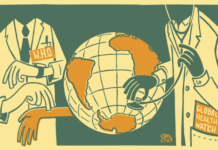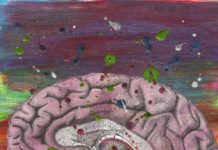Can Psychiatry Respond to Mad Activism?
Psychiatrist Mohammed Abouelleil Rashed explores a way forward for psychiatry in responding to the Mad activism of service users.
Committed at 16: Memories of a State Hospital
While most of the sting is gone, even now — almost sixty years on — I can’t get through a single day without thinking about shock treatment and the state hospital. I regularly have dreams or nightmares about being lost in a strange place and someone making me feel like dirt.
Psychology and Poverty: An Interview with APA President Rosie Phillips Davis
MIA’s Gavin Crowell-Williamson interviews psychologist Rosie Phillips Davis about her presidential initiative to address deep poverty.
MIACE 2020: New Approaches to Working With People Who Are Suicidal
In March, MIA Continuing Education is launching an 11-seminar course that will provide new insights into understanding the factors driving the increase in suicide, and tell of “therapeutic” approaches that “demedicalize” suicide and offer new ways to help people in crisis.
Bringing Structural Competency to Global Mental Health
Structural competency is put forth as a framework that addresses social and structural determinants in global mental health.
How to Change Psychology to Address Racial Health Disparities
Psychology can only deal with racial health disparities effectively by incorporating critical race theory and intervening at a structural level.
Amanda Burrill: Self-Advocacy and Self-Belief – Escaping Psychiatric Drugs
An interview with Amanda Burrill, who, after a successful career as a Surface Warfare Officer and Rescue Swimmer in the US Navy, was on track to continue her career as a professional triathlete and marathon runner. Around the time of her discharge, she was prescribed a cocktail of psychiatric medications that caused physical injuries, leading to an early end to her rapidly accelerating career.
To Live and (Almost) Die in L.A.: A Survivor’s Tale
After 25 years of chronic emergency, 22 mental hospitalizations, a stint at a “community mental health center,” 13 years in a "board & care," repeated withdrawals from addictions to legal drugs, and a 12-year marriage, I plan to live every last breath out as a survivor, an advocate, and an artist.
Mental Health Professionals and Patients Often Disagree on Causes of Symptoms
A new study finds that clinicians’ disregard for mental health patients’ insight into their own condition may be detrimental to treatment.
Stalked by Stress, Abandoned to Predation: The Appeal of Suicide in a Modern World
It's not just weapons and fangs that kill me. Being stalked by industry, bureaucracy and social sentiment is deadly too. Mammalian bodies are not wired to endure chronic, pervasive threat and vulnerability. Yet this stuff is ubiquitous and embedded into mainstream culture.
Meaning in Life Linked With Health, Cognitive Functioning
A new study associates the presence of meaning in life with well-being and cognitive functioning in an adult population.
Making Peer Counseling Radically Accessible
I imagined a world in which anyone can hit a button on their phone and be connected with a compassionate and empathetic listener, 24/7. So in 2019, I founded Peer Collective. Today, there are 30 peer counselors on the platform offering 30-minute counseling sessions for just $14.
Can Phenomenology Help Clinicians Stop Objectifying Clients?
Svetlana Sholokhova suggests that incorporating “phenomenological psychology” could open up possibilities for radical transformation within the field of psychiatry.
Is There a Small Group for Whom Antidepressants Are Effective?
In a new study, researchers found no evidence of antidepressant group variance, which means that there's no particular group of patients who improve more than others on the drug.
The Day I Became Schizophrenic
Schizophrenia, to me, is nothing more than a word. All it really means is that you experience psychosis on a regular enough basis that it’s a factor in your life. And that you actually do, as the word “schizophrenia” indicates, have a mind that you share with some sort of outside presence.
Power Means Never Having to Say You’re Sorry
I wonder how this system would be changed if, tomorrow, every provider (past and present) woke up and made it their mission to find someone who’s been through their services in one way or another, and told them they were genuinely sorry for something specific that had happened during that time.
The Real Myth of the Schizophrenogenic Mother
Acknowledging the role of trauma inflicted by a given individual’s mother is not the same as laying all blame for “mental illness” at the feet of motherhood. Meanwhile, a mountain of evidence has accumulated linking schizophrenia to sexual, physical, and emotional abuse and many other categories of adverse childhood experiences.
Remembering Bonnie Burstow
Dr. Bonnie Burstow was a legend in her own time. She died too young, at 74, surrounded by close friends and loving students, after a short stay in the palliative care unit of Toronto General Hospital. The world has lost a truly great woman: a phenomenal antipsychiatry/anti-electroshock warrior, and a tireless fighter for human rights. And I have lost a beloved sister.
Study Links Emotional Intelligence and School Achievement
A new meta-analysis highlights a positive relationship between student emotional intelligence and academic achievement.
No, Dr. Friedman: The Solution to Teen Suicide is Not So Simple
In the largest newspaper in the world this week, one of the largest problems in the world was proposed as having a very simple solution. No, the answer to our suicide crisis among youth is not to encourage more teens to embrace more treatment. It’s to pursue multifaceted answers to a complex, multifaceted problem.
Opening Doors in the Borderlands: An Interview with Liberation Psychologist Mary Watkins
MIA’s Micah Ingle interviews Mary Watkins about reorienting psychology toward liberation and social justice.
Surviving Psychiatry: A Typical Case of Serious Psychiatric Drug Harms
I reproduce here a patient's journey as she presented it to me, shared at her request. She was seriously harmed by psychiatric drugs; her life became endangered; and she suffered an excruciating withdrawal phase because she did not receive the necessary guidance. But she is doing well today.
Higher Drop-Out Rates for Those Taking Antidepressants
A review of 73 antidepressant studies finds that 12% more people drop out of clinical trials when taking antidepressants than when taking placebo, evidence that many find the adverse effects of antidepressants difficult to tolerate.
Researchers Fail to Predict Antidepressant Treatment Success
In a new study published in JAMA Psychiatry, researchers investigated whether they could use EEG (electroencephalograph) technology to predict whether people would feel better...
Real Doctors Are Peddling Fake Diseases: Here’s How to Spot Them
We’re bombarded with ads for newly discovered diseases. Are they all legitimate, or are some sham illnesses that were created to sell more drugs? Here are four ways to logically test whether or not something really is a classic (physically-based, symptom-causing) disease.

































